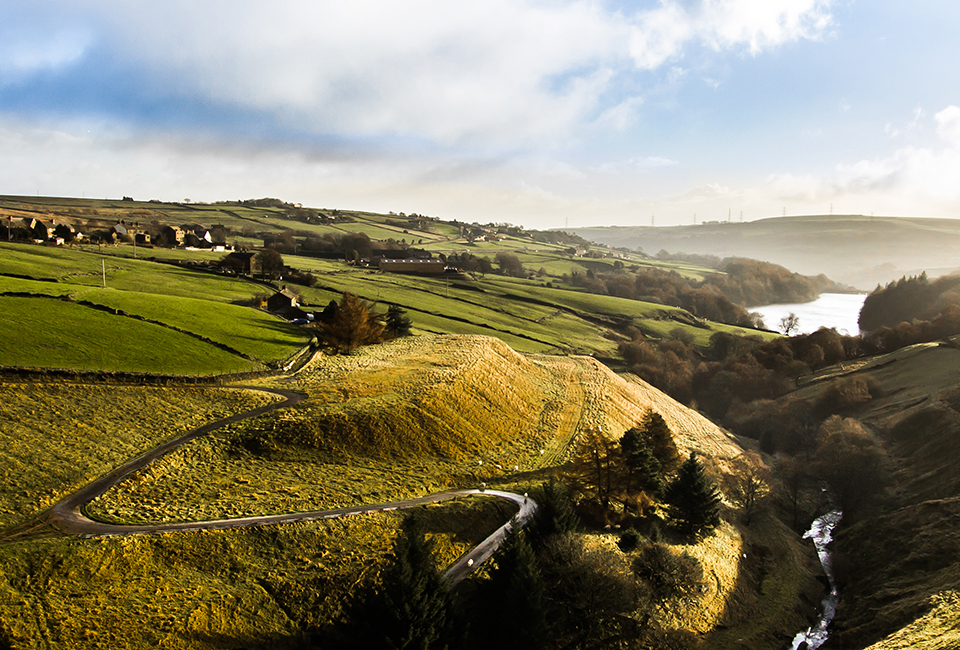Why is it important?
Climate change is increasingly impacting on our lives and our business:.
- Rainfall is getting heavier. This can overload the public sewer network and cause flooding and pollution
- We expect 14-28% less rainfall during the summer months and 6–14% more rainfall during the winter months by the 2080s
- We've seen a rise in average temperatures. The 21st Century has been warmer than the previous three centuries and 2019 was 1.1°C warmer than the long-term average.
What are the key principles?
We will...
- meet our customer promise in relation to carbon
- work in partnership with stakeholders to maximise value
and benefits for everyone - report progress openly and transparently against our plan
- act on data and science. If there are subsequent changes we will act on these to review strategy, plan and approach. This is particularly true in relation to the key risks and opportunities.
The next 12 months
In the next 12 months, we will:
- align with core business decision making
- implement plan to deliver more on site renewables
- roll out fleet improvements
- commit resources to deliver on the plan
- speak to our customers about the plan
- continue to form strong partnerships to coordinate tackling climate change and reducing emissions
- produce a costed plan to 2030 to meet our ambitions.
Our approach will focus on five key areas
![]()
1. carbon resilience
We will reduce carbon to make long term transformation changes to adapt to the impacts of climate change.
![]()
2. Carbon reduction
We will reduce carbon to make our operations more efficient.
![]()
3. Reducing emissions
We will reduce emissions by choosing renewable energy and low carbon fuels.
![]()
4. Improving carbon storage
We will improve carbon storage through retaining and improving land to store carbon and provide wider sustainability benefits like water quality.
![]()
5. Forming key partnerships
We will form key partnerships by coordinating efforts with Yorkshire institutions to meet challenges like developing electric vehicle infrastructure.

Our decision making process hierarchy
- Long term resilience
- Improving efficiency by using less
- Choosing green
- Storing the rest
How will we achieve this?
Decision making
- Ensure low carbon is part of everyday business decision making
- Form strong regional partnerships to reduce emissions across Yorkshire
- Use data and science in decision making
Efficiency, renewables and green energy
- Use zero carbon grid electricity
- Replace grid gas with biomethane
- Deploy up to 120 MW of solar by 2030
- Deploy solutions to ensure we can maximise use of renewables, such as storage
- Minimum of 30% of all electricity we use to come from on site renewables
- Deliver an energy efficiency programme to reduce electricity use by 28% by 2030
Fuels and travel
- All vans and cars will be electric by 2030
- 50% of tankers and large vehicles will be
zero emission by 2028 - 100% reduction of on site liquid fuels by 2030
Technology and innovation
- Target and support innovation and new technology to reduce emissions by 51kt CO2e
Carbon retention and ‘store the rest’
- Deliver tree planting, peatland restoration and other initiatives to store up to 27ktCO2e by 2030
Wider emissions from the building, maintenance and purchase of goods
- Reduce capital emissions by 23% by 2025
- Look towards long term targets to support UK target to be net zero by 2050
- Target key areas such as chemicals and waste
Risk and opportunity
Key risk
Emissions directly relating to the treatment of wastewater, are called process emissions. Improving science and monitoring is likely to lead to higher reporting of these than previously thought. We have built an uplift into our strategy to mitigate this in line with what we know now. We will have to manage this proactively and review strategy accordingly.
Key opportunity
Implementing our solar programme provides multiple benefits to both emissions reduction, resilience of our assets and cost benefits.

